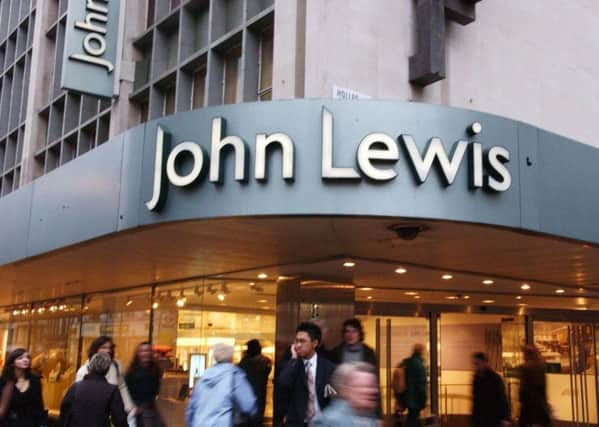Martin Flanagan: John Lewis still strong despite bonus cut
This article contains affiliate links. We may earn a small commission on items purchased through this article, but that does not affect our editorial judgement.


The eponymous department store-to-Waitrose supermarket group, one of the more avuncular players on the retail block, says the aim is to preserve capital to give the partnership firepower to address ongoing internal reorganisation, the volatility of the high street and profound societal changes that mean people are doing ever-more electronically – including shopping.
Fewer shops will be opened; regeneration of existing outlets will be more the watchword from now on.
Advertisement
Hide AdAdvertisement
Hide AdThe overall aim is anticipation. Either be up with curve on all these societal changes, or risk floundering a few years down the line by just lazily sticking with outdated retail management-by-numbers, riding on the back of your brand, while headwinds are just delayed, not avoided.
Group chairman Sir Charlie Mayfield clearly believes being nimble and taking some financial hits up front to achieve that nimbleness is the best guarantor of trading success in the medium term.
Having said that, the strength of the brand – John Lewis is one of the unofficial totems of Middle Britain, along with the BBC Today programme and dinner parties – definitely gives the partnership breathing space to effect the changes it wants and hone the agility of its business model.
Look at its sales resilience in these tough times for even the stalwarts of the retail sector. John Lewis department stores’ like-for-like revenues for the financial year to 28 January rose 2.7 per cent,
That is an outperformance of the British Retail Consortium’s members average performance in the period of 2.8 per cent. That’s quite a tidy achievement. Same-floorspace sales at Waitrose, meanwhile, though down just 0.2 per cent in the period overall, improved in the second half.
Meanwhile, profits before exceptionals and lower pension accounting charges are up about 2 per cent at £370.4m.
Even the much-reduced partnership bonus of 6 per cent of salary this time has to be put in the context of a pretty decent looking 5 per cent rise in basic pay for non-management partners in the latest year, and what is a pretty decent pension scheme by most standards (ask former workers at BHS).
John Lewis, overall, looks as if it deserves the benefit of the doubt.
